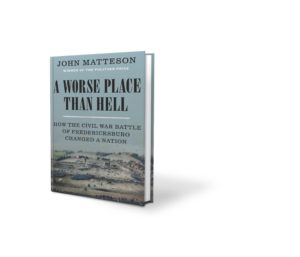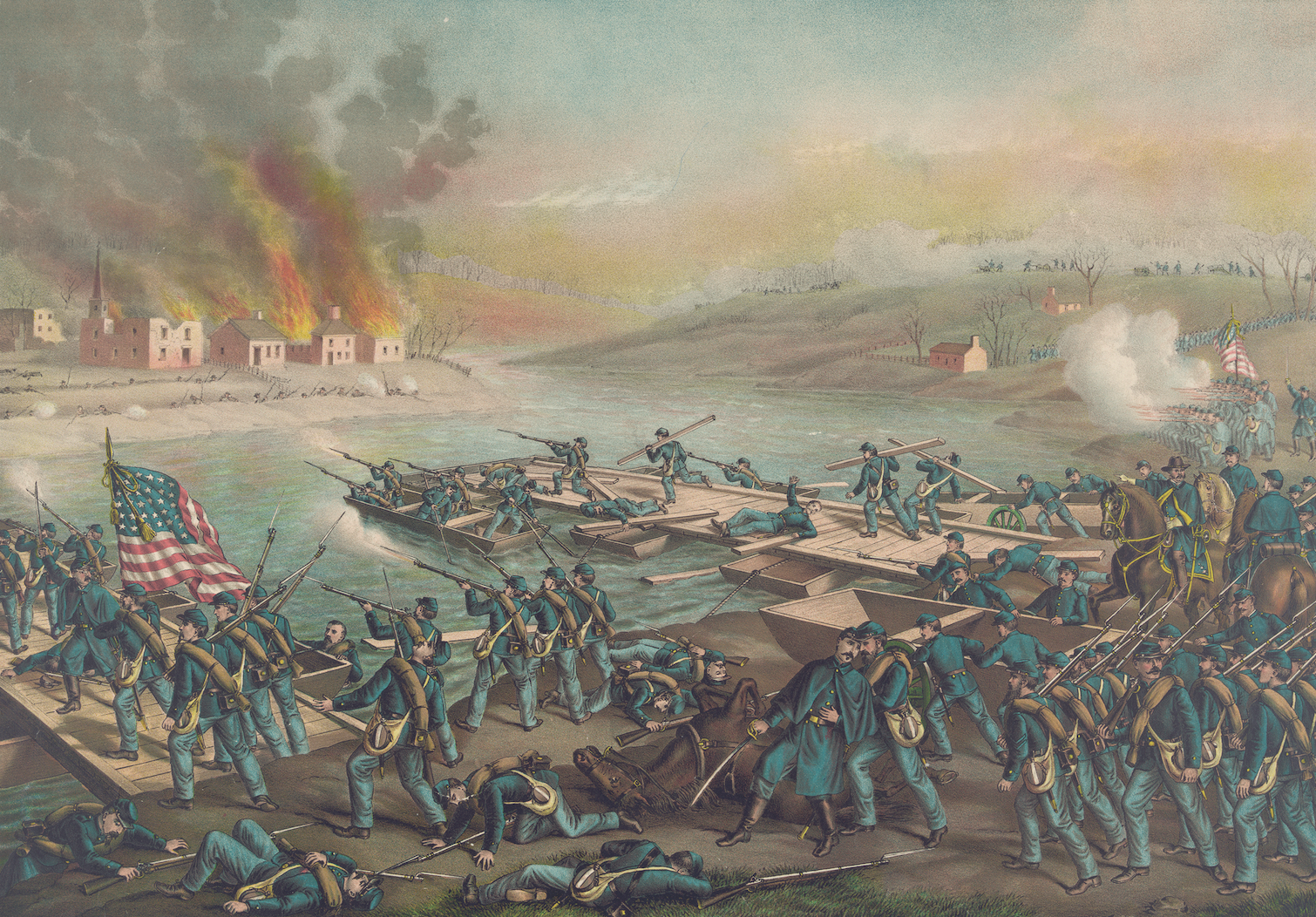
How the Civil War Battle of Fredericksburg Changed a Nation
By John Matteson
W.W. Norton & Company, 2021, $35
A Worse Place Than Hell is a cogent, elegantly written examination of the far-reaching impact of a single battle. “More concerned with the personal than the political,” author John Matteson eschews history on the grand scale for a view shaped by the experiences of Oliver Wendell Holmes Jr., John Pelham, Walt Whitman, Arthur Fuller, and Louisa May Alcott.
Matteson follows the five from Antietam through the Union debacle at Fredericksburg three months later, arguing that we “would now inhabit a different nation” had each of these individuals not been transformed by their witness to the war’s slaughter. Today Holmes, Alcott, and Whitman are familiar names; Pelham and Fuller, neither of whom survived the war, less so.
John Pelham commanded J.E.B. Stuart’s “horse” artillery and played a key role in the Confederate repulse of the Union assaults on Marye’s Heights at Fredericksburg. Christened the “perfect lion” by a biographer, Pelham met an early death, at 25, at Kelly’s Ford in March 1863 and in Matteson’s telling became “a unique icon” reminding Southerners then (and now) that “the war had not been horrible, but courtly and glorious.”
Arthur Fuller, younger brother of the Transcendentalist luminary Margaret, was a chaplain for the 16th Massachusetts at Fredericksburg. About to be sent home due to his failing health, he chose instead to join Union troops crossing the Rappahannock and was killed by a Rebel sniper. “Much less an icon than an emblem,” Matteson argues, Fuller “believed the war could be fought on ethical terms,” despite growing evidence to the contrary.
Whitman was drawn to the Virginia battlefield in search of his wounded brother, George. After witnessing the battle’s human costs, the poet traveled to Washington to spend the remainder of the war caring for wounded Union soldiers. His experience, suggests the author, restored his vision of America and, by the poet’s own admission, had a greater impact on him than any other of his life.
Alcott’s direct contact with the war was limited to six weeks in Washington, working as a nurse in a Union hospital beginning in December 1862. While there she treated many of the Fredericksburg casualties before contracting typhoid and being forced to return home. Matteson maintains that Alcott’s brief experience at the hospital lent an air of reality to Little Women that was largely absent from other contemporary children’s literature.
The thrice-wounded Holmes was at Fredericksburg but unable to fight. His service, writes Matteson, taught Holmes that people “live amid largely random forces.” How the law could and should respond to this uncertainty would become the question animating his jurisprudence.
All five, Matteson concludes, “tried to find a core of virtue that could balance and justify the evil….The war drove a thinking person in one of two directions.” For Whitman and Alcott, their time in Union hospitals “led them toward a redoubled insistence on the necessity of community and compassion.” Holmes, on the other hand, “came to see all of life in terms of power and struggle.”
Matteson’s excellent book offers a fresh approach to Civil War studies. May it inspire other scholars to follow his path.
*Thank you for visiting historynet.com. If you buy something through our site, we might earn a commission.





